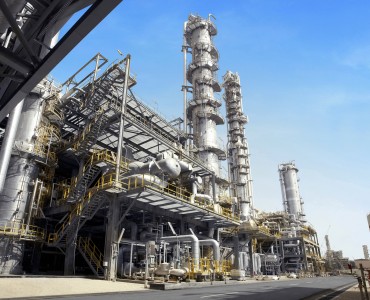Attacks on the Egyptian pipeline delivering natural gas to Israel cost the Jewish state an average of 10 million shekels (US$2.67 million) a day over the summer months, Israel’s Ministry of National Infrastructure (MNI) said this week, according to Israel’s Globes business daily.
The disruption to Israel’s main gas supply forced the country to produce its electricity with a diesel alternative. During the months of July and August, the burning of an extra 142,000 tonnes of diesel compared to the same period in 2010, cost Israel an additional $159.91 million.
Diesel is significantly more expensive than natural gas, at around $33.32 per million British Thermal Units (BTU), compared with $5.33 per million BTU for natural gas. Heightened production costs brought a 10 per cent hike in electricity bills for Israeli citizens.
The Sinai pipeline transporting gas between Egypt and Asia has been the target of six sabotage attempts by unidentified militants since February. Five have succeeded in destroying facilities.
The near-continuous attacks have disrupted gas supplies to Israel and Jordan both of whom depend heavily on Egyptian exports to generate 40 and 80 per cent respectively of their energy needs.
Managed by the East Mediterranean Gas Company (EMG), gas flow to Israel has been frozen since the second-last attack on 25 July. Previous suspensions occurred between 5 February and 15 March, and between 27 April and 6 June.
MNI said that further attacks on the pipeline did not affect an already suspended gas supply.
The constant disruptions and their effect on the economy have led Israeli officials to look elsewhere for a more reliable source of natural gas.
“The figures highlight Israel’s need to ensure energy independence. This is the primary objective we’ve set,” Israel’s infrastructure minister, Uzi Landau was quoted as saying by Globes.
Landau indicated that Israel should move fast on the construction of a land gas pipeline and switch to using renewable fuels to generate electricity.
The 2009 discovery of substantial natural gas reserves at the Tamar exploration site, deep in the Mediterranean sea off the port of Haifa, could be Israel’s gateway to energy self-sufficiency.
Drilling at the field, which is expected to contain up to 9 trillion cubic feet of natural gas, began in September 2011. According to the Noble Energy Company, drilling will take around one year and the field will begin producing natural gas by the end of 2012.
Until that happens, Israel might well seek compensation for the losses it has suffered as a result of gas stoppages.
International shareholders in EMG are pushing ahead with legal claims against Egypt for US$8 billion in damages from contract violations in gas supplies, a company official said.
Israel hailed the 20-year natural gas deal it signed with Egypt in 2005 as one of the most important agreements to emerge from the historic peace deal the countries reached in 1979.
But there has been much uncertainty over relations between the two countries in the wake of Egypt’s 25 January uprising, the latest of which was the storming Israel’s embassy in Cairo. Israeli Prime Minister Benjamin Netanyahu has said the Egyptian government is losing control of the Sinai peninsula.
Egyptian officials have said the government will review its gas contract with Israel amid accusations Mubarak’s administration improperly negotiated the sale of gas at preferential prices. It has even ordered a former energy minister and six other officials to stand trial.
Israel says the price it pays for gas is on par with international standards and that it will not renegotiate the price, which was already adjusted upward about a year ago. Israeli energy officials say the Egyptian government receives more than $3 per million British thermal units (BTU) from Israel.
Source: Ahram Online











